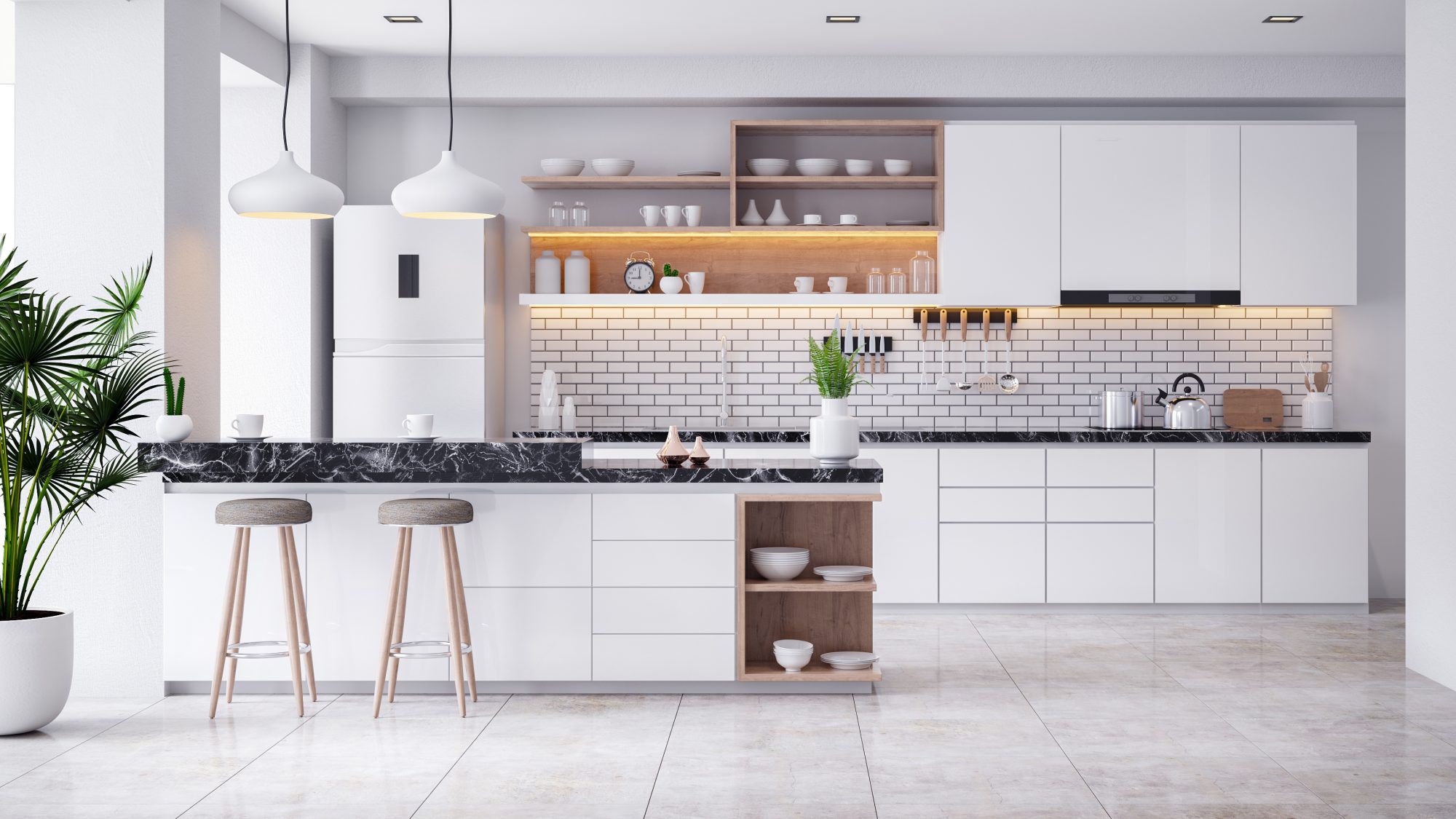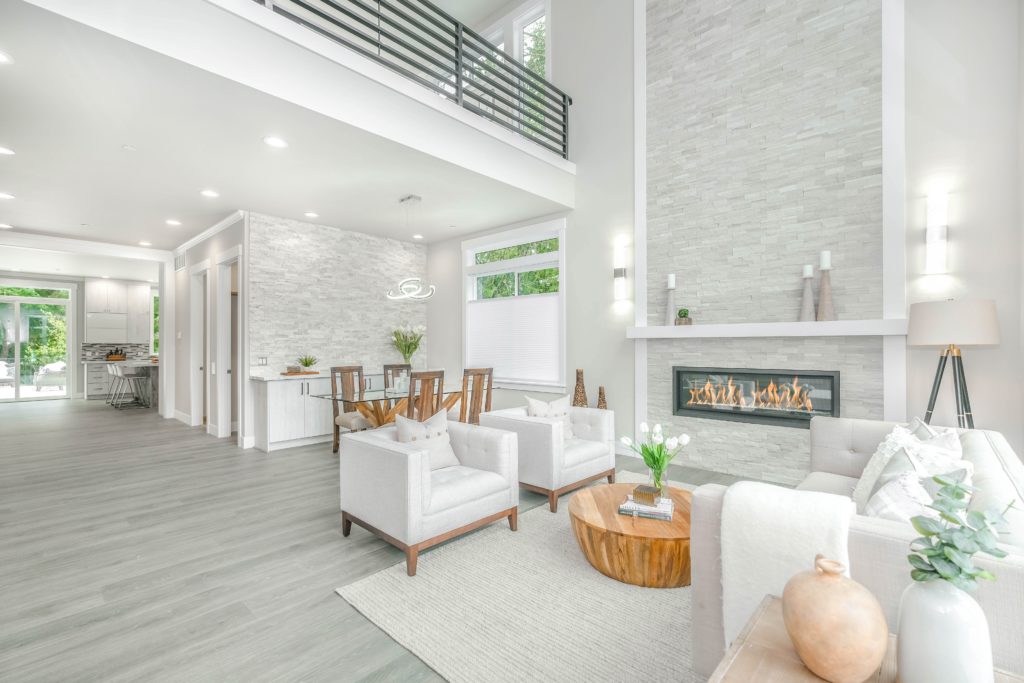Remodeling your home can be an exciting journey that transforms your property into a lavish living space. However, the projects can be overwhelming, especially when navigating financial aspects, planning, design choice, permits, and specific features with the best value.
You can minimize unnecessary stress with careful planning before you start the project. While some design elements may look perfect on paper, it’s prudent to pause and consider how the features impact functionality, home value, and your tax obligations.
1. Best Upgrades With the Highest Value
A quality, modern garage door tops the list of upgrades that can give you the highest returns on your investment. This upgrade improves your curb appeal, and while an average galvanized steel garage door costs about $4041, you can recoup 93% of your initial investment when selling your home.
Manufactured stone veneers impart class and elegance to your property. Installing stone veneer on the entire siding or just the entryway boosts aesthetics. Most importantly, this upgrade can give you about 91% of your investment.
A modern, lavish kitchen can brighten your home and make meal preparation and sharing a heartfelt joy. The kitchen is among the top selling points among home buyers. The upgrade project involves cosmetic remodels like updating countertops, cabinets, hardware, flooring, paint, and outdated appliances. A kitchen overhaul may not be cheap, but you can recoup about 71% of your investment. If you want to maximize ROI, stick to modest upgrades since big projects involving layout redesign have a lower ROI.
Dull and dilapidated siding can make modern homes look dated. However, fiber cement siding can restore the glorious appearance of your home. Ideally, a neat siding upgrade with cement fiber can give you at least 68% ROI. On the other hand, vinyl siding is relatively cheaper, but it will give you about 67% of your investment.
2. How Capital Improvements Affect Your Taxes
The cash you spend renovating your home falls under repairs or capital improvements. Capital home improvements are any upgrades that add value, adapt to new use, and prolong life. You can add capital improvements to the home basis when determining your net profit after a sale. Capital improvements don’t just include expensive upgrades but can consist of items like storm windows, heaters, and security systems.
If you owned and lived in a home for the last two years before selling, the first $250,000 of your profits is tax-free when you file single and $500,000 when filing as a couple. Any extra profit on a home basis is tax deductible. Typically, the current law requires you to pay 0%, 15%, or 20% in taxes when selling a house, depending on your tax bracket.
3. Design Inspiration
When planning a considerable home upgrade project, one of your top considerations is the features and appearance of your ultimate design. Luxurious aesthetics can be vast, ranging from elegant minimalism to extravagant maximalism, making your possibilities endless. Typically, too many possibilities can be overwhelming.
Try to narrow down the options by studying the interiors you want, and note the most attractive styles, colors, and textures. Having a few potential options makes it easy to determine how you’ll incorporate the elements into your final design.
Besides the aesthetic appearance, it’s best to consider the functions of each design feature in your lifestyle and the impact on taxes when selling a house. For example, a large kitchen island with enough practical surface for meal preparation can be ideal if you’re upgrading your kitchen and like frequent group party dinners.

4. Realistic Budget
A budget is vital in any renovation project because it guides you on what you can include. Start by studying your finances and determine what you can afford to spend on the renovation project. Once you get the maximum amount you can comfortably pay, deduct 10% to get the final budget. Keeping below your maximum gives you enough wiggle room if you encounter unpredicted expenses.
The home renovation budget should cover the costs of materials, labor, permits, and finishing materials. You can request estimates from several prospective contractors, and if the estimate exceeds your maximum budget, eliminate low-priority features.
5. Building Codes and Limitations
Most states have specific building codes and restrictions based on minimum acceptable standards for new and renovation projects to protect public health, welfare, and safety. For instance, if you want to add more ensuite bathrooms or extend the living room, you must comply with the codes when installing electrical and plumbing systems.
Consult an engineer or architect to help with project design before flagging off the construction work. The professionals have the necessary experience to guide vital decisions likely to influence the success and approval of your remodel project.
6. Building Permits
Depending on the scope of your project, you may require building permits from local authorities. The permits regulate aspects like the height of your fence relative to your boundaries, grading to enhance runoff, and fire sprinklers, among others.
However, specific permit requirements can vary depending on location. It’s prudent to submit your project plan to city authorities for clarification about necessary permits, but your contractor can handle permit requirements on your behalf. While some people think permits are an unnecessary waste of project time, failure to obtain permits can attract hefty penalties and scare away future buyers.
While some home upgrades seem too simple to warrant a permit, the approval process has its reasonable share of complexities, and it’s prudent to consult a professional to ensure you are on the safe side.
7. Your Schedule and Quality of Life
Home remodeling projects can cause inconveniences like massive debris, noise, and unusable living space. However, good planning can help you survive a major renovation project. For instance, designate a temporary area you can use for meal preparation when the contractor is working on your new kitchen design.
Make sure to take any kitchen appliance you might need to prepare light meals and coffee. However, if you are dealing with a complete kitchen overhaul that can take more than three weeks, it’s vital to include restaurant food in your budget since you might be eating out frequently.
Most importantly, review your schedule before commissioning the renovations to avoid conflicts with significant life events. Allocating enough time and space around important events can save you from the hassles of living through incomplete renovation work.
Endnote
Transforming a modest home into a lavish property requires careful planning and patience throughout the renovation process. Having some foresight and figuring out all the details before commissioning the project is essential. Think about your ideal design and how different aspects will likely impact your budget, comfort, and overall home value.






